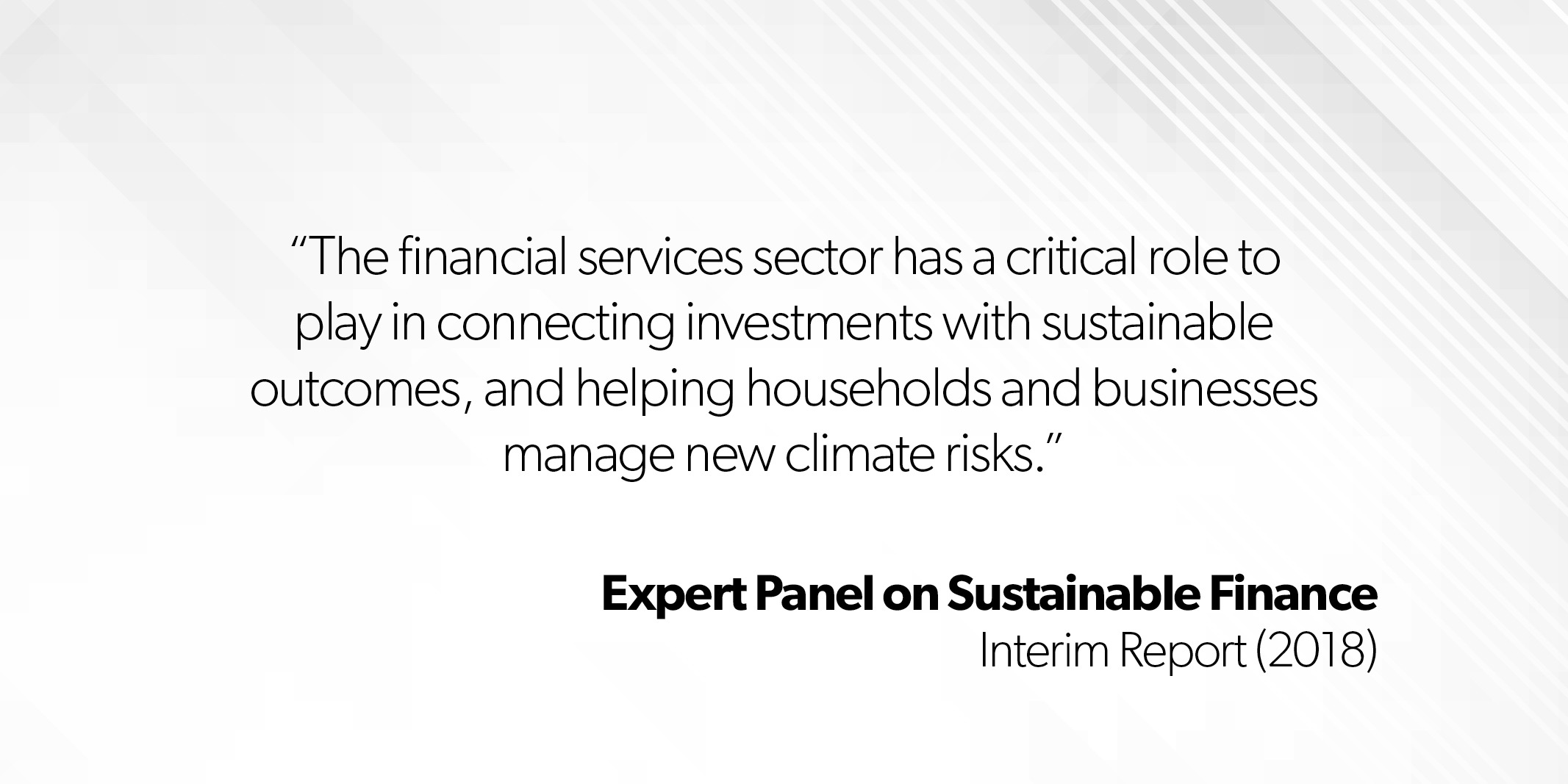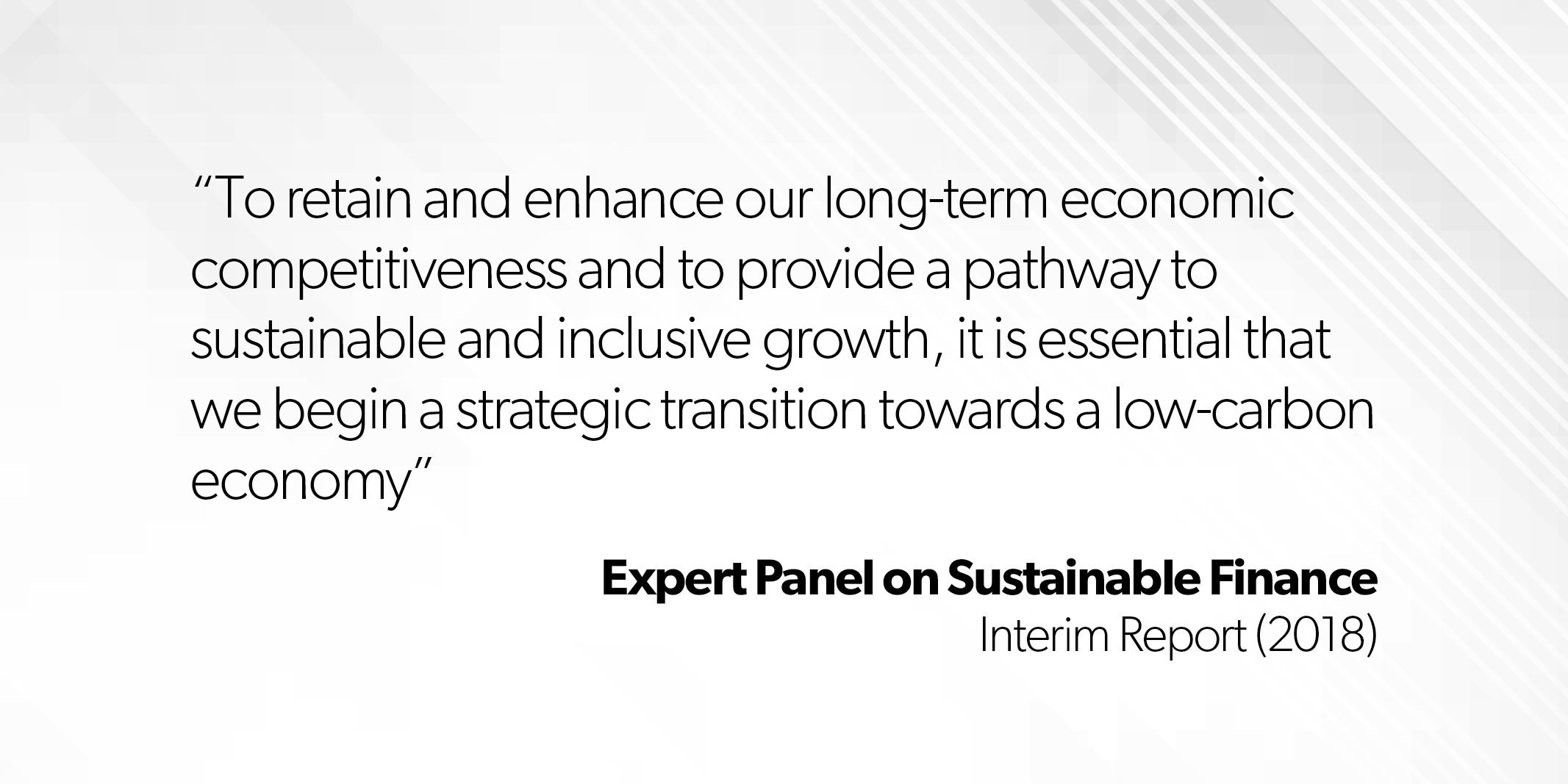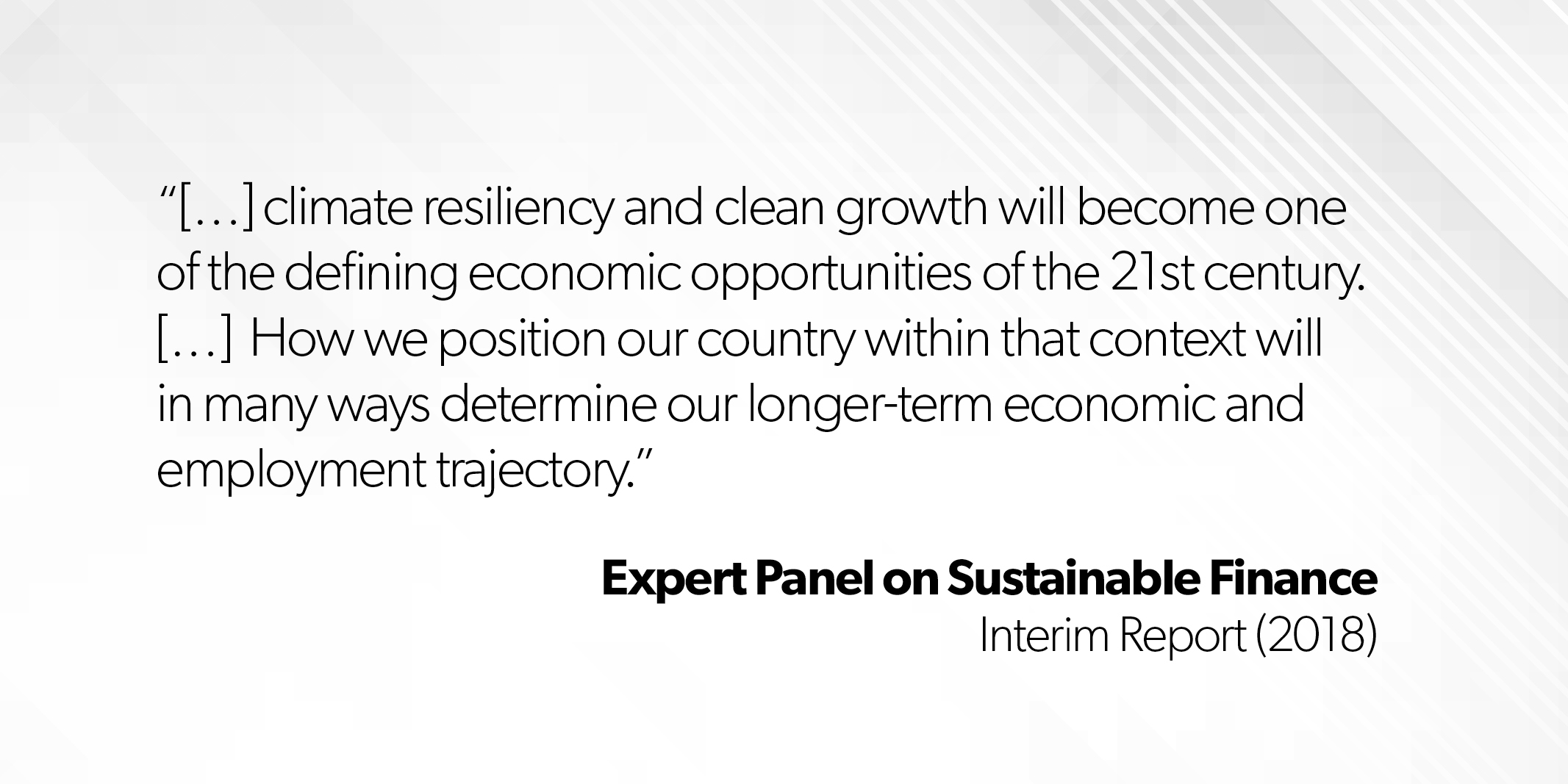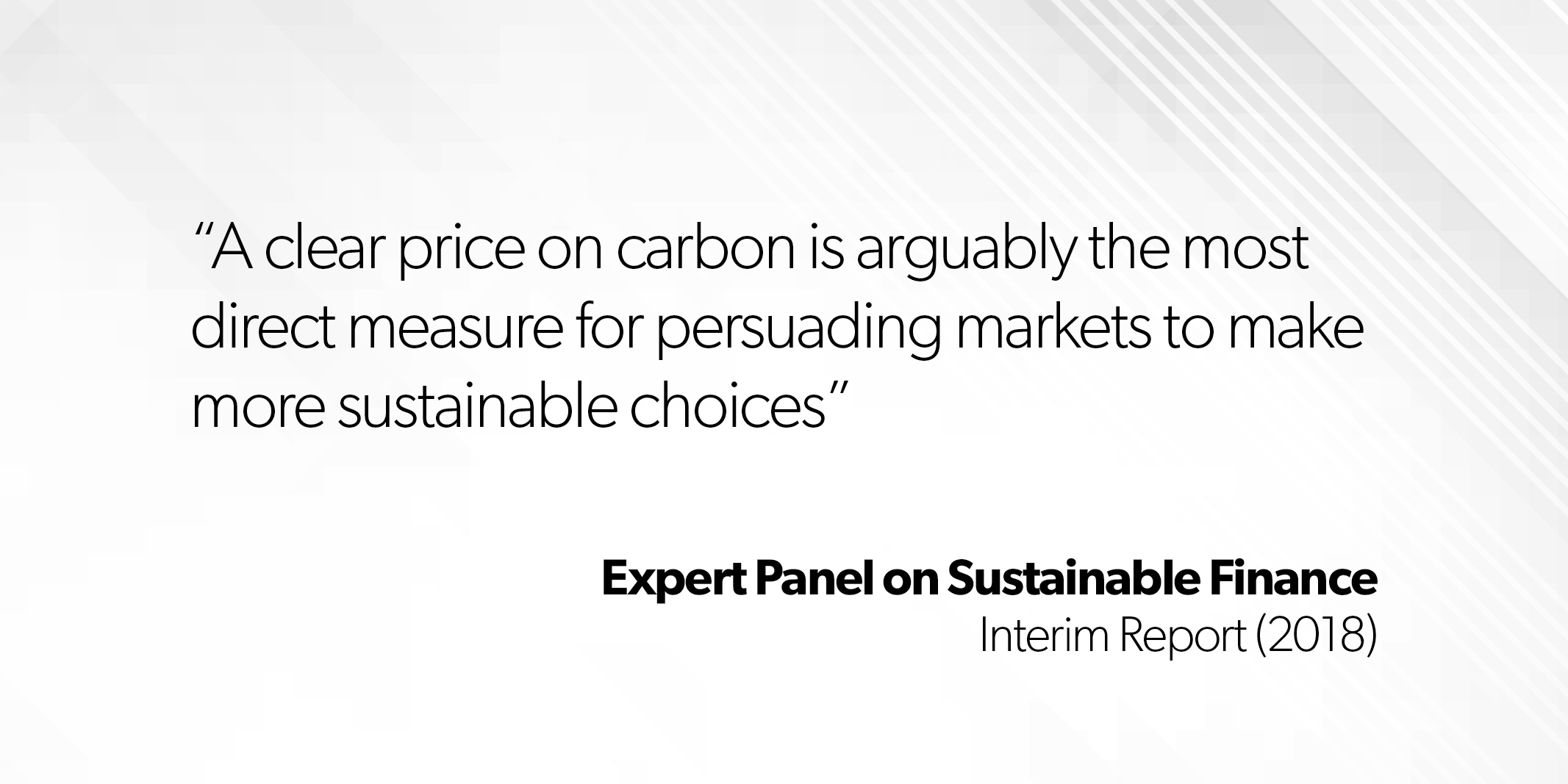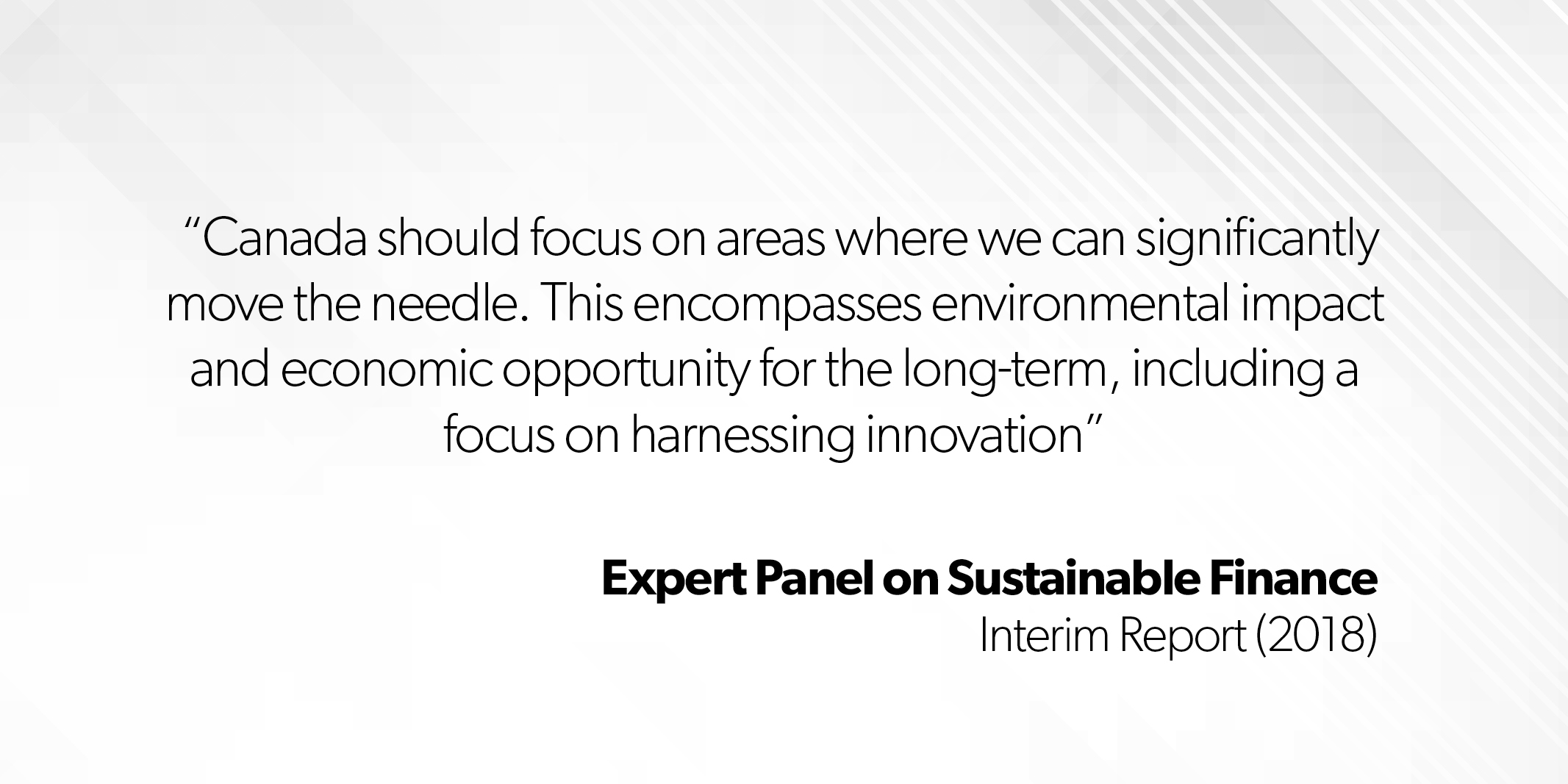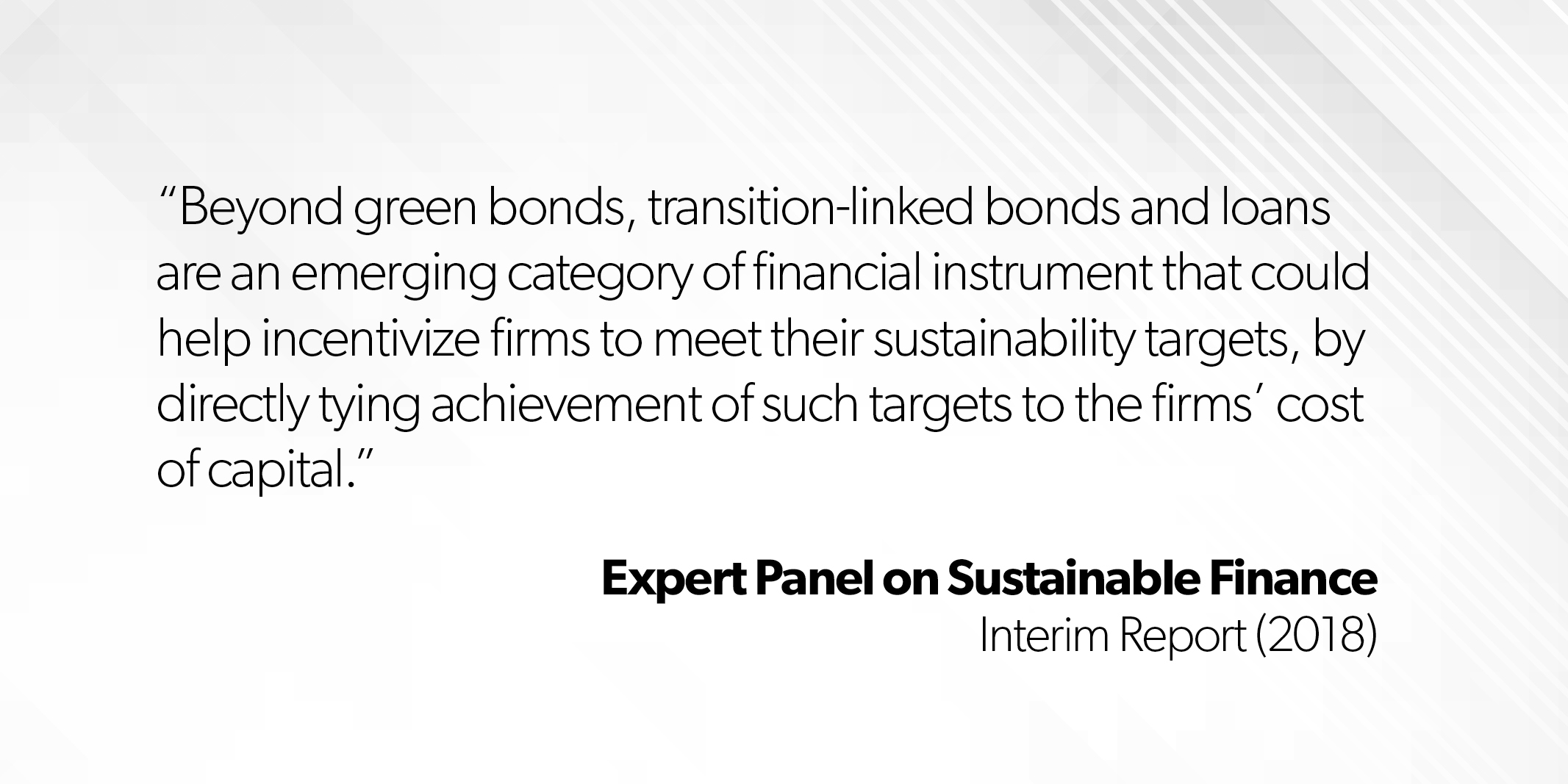
October 24, 2018
By Katherine Monahan & Stewart Elgie
Today, the Expert Panel on Sustainable Finance released its interim report. It describes the growing global shift to clean growth and climate resiliency, and sets out the main types of financial products, activities and market solutions that Canada can pursue to unleash the private investment needed to capture this critical economic opportunity.
“climate resiliency and clean growth will become one of the defining economic opportunities of the 21st century… How we position our country within that context will in many ways determine our longer-term economic and employment trajectory.”
A number of countries, including China and the UK, are moving fast to accelerate sustainable finance and position themselves as leaders in this economic transition. Canada has the right ingredients and capacity to be a leading “shaper”, rather than a “taker”, in this changing global marketplace. Our sustainable finance market is not currently growing at the pace needed to do so, but there seems to be a strong appetite to improve that situation.
The report outlines 6 “Foundational Elements” that they see as essential to underpin increased investment in sustainable activities. It warns that without these elements, Canada’s mainstream financial system will struggle to align to low-carbon and climate-resilient priorities, missing the opportunities inherent to clean growth.
These policy and finance elements would help reduce barriers and mobilize greater private sector capital towards low carbon solutions. The report also highlights some of the most important financial and market opportunities to reduce emissions and accelerate clean growth across Canada’s economy.
The Expert Panel on Sustainable Finance was appointed by Canada to provide advice drawn from broad consultations on how to help channel investment towards relatively lower carbon and more climate-resilient assets, technologies, infrastructure and business processes.
The report also discusses the status of sustainable finance in Canada including progress on issues such as climate-related risk disclosure and green-bond issuances, as well as potential barriers to cleaner investment flows such as poor information and articulation of low-carbon pathways or uninformed risk expectations. The report notes that the entire financial community has a role to play including institutional investors, property and casualty insurers and reinsurers, banks, retail asset managers, and other investors and firms. Moreover, growing sustainable finance will require effective collaboration across jurisdictions and sectors.
The panel members are: Tiff Macklem, the Dean of the University of Toronto’s Rotman School of Management and former senior deputy governor of the Bank of Canada; Andy Chisholm, a member of the board of directors of the Royal Bank of Canada and previously Goldman Sachs & Co, in New York; Kim Thomassin, an Executive Vice-President with the Caisse de dépôt et placement du Québec; and Barbara Zvan, the Chief Risk & Strategy Officer for the Ontario Teachers’ Pension Plan.
This Interim Report also outlines a number of questions that will guide further consultation over the fall. The final report, to be delivered in the spring of 2019, will include practical and actionable recommendations that both the public and private sector can consider to help gear up the financial sector for climate change.
